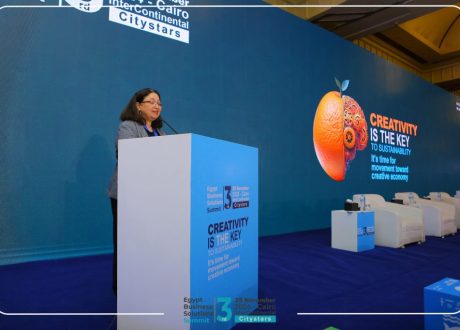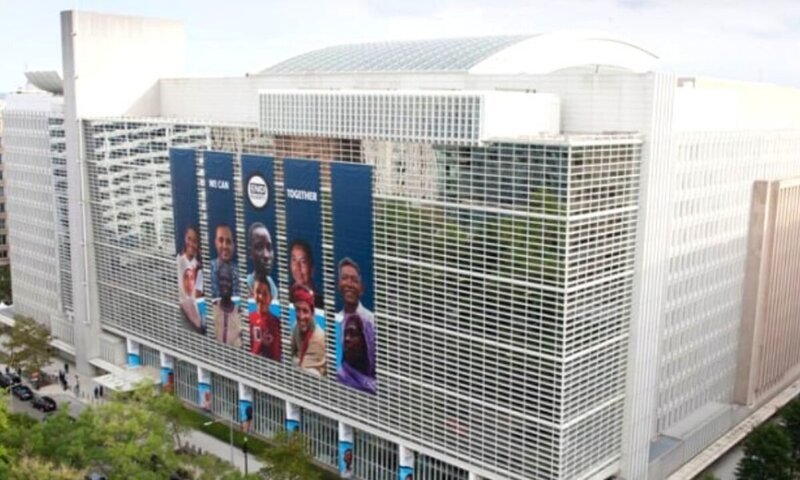
Saroufim: Creative economy, sustainable development are two sides of same coin
Margaret Saroufim, Deputy Minister of Social Solidarity, asserted that the creative economy and sustainable development ...

The Lebanon Financing Facility (LFF) allocated about $ 55 million to help vulnerable households and small businesses.
The World Bank has convened the first meeting of the Partnership Council for the LFF to discuss the priorities, proposed funding allocations and priority projects for the LFF’s first year of operation, and endorsed a work plan with a total allocation of approximately $55 million.
The meeting gathered representatives from the Government of Lebanon, the LFF donor members: Canada, Denmark, the European Union, France and Germany, civil society organizations representing the 3RF Consultative Group: Lebanon Humanitarian and Development Forum (LHDF); KAFA, Green Mind, and the UN.
Donor members of the Partnership Council reconfirmed their commitment to stand by the people of Lebanon and help them weather the compounded crises they are faced with.
The Partnership Council’s endorsement of the LFF annual workplan is an important milestone, yet it is not sufficient given the deliberate human and economic crisis in Lebanon. Only a credible and reform-minded government can help address the longstanding challenges and structural problems facing Lebanon and restore citizens trust and confidence.
Thanks to the financial support of Canada, Croatia, Denmark, the European Union, France and Germany, the Partnership Council meeting kick-starts the implementation of much needed priority projects that will provide the Lebanese people with immediate socio-economic relief and allow micro-, small- and medium-sized enterprises (MSMEs) to embark on the path of sustainable recovery in line with the LFF’s phased approach and based on the projected level of donor funding available in 2021. While the international community is working together to address the socio-economic recovery needs of the people of Lebanon, more donors are invited to come forward in support of the 3RF priorities under the umbrella of the LFF.
The approved LFF work plan includes four key recovery projects. The first project is supporting Immediate Social Recovery Needs of vulnerable groups affected by the explosion with a focus on gender-based violence, psychosocial support and care for the disabled and the elderly. The second one focuses on environmental recovery, restoration and waste Management to remove critical hazardous waste inside and outside the Port of Beirut. The third is Beirut Housing Reconstruction and Cultural Heritage and Creative Industries Recovery which is meant to support the rehabilitation of cultural heritage residential buildings and access to sustainable housing solutions for vulnerable households directly affected by the explosion, and revitalize cultural production in Beirut.
The fourth project is Building Beirut Businesses Back Better (B5) to support the recovery of targeted MSMEs and sustain the operations of eligible microfinance institutions (MFIs). The work plan also comprises governance activities that lay the groundwork for reconstruction with integrity and transparency and prepare a roadmap for Lebanon’s port sector reform. Finally, the work plan also comprises activities to operationalize the 3RF through the establishment of an Independent Oversight Board led by the civil society, citizen engagement initiatives that prioritize participation and inclusiveness, and support to 3RF monitoring and communications activities.
In line with the guiding principles of the 3RF, projects approved under the LFF will adopt innovative and flexible implementation modalities through the provision of direct support to capable non-government organizations and civil society organizations as well as to private sector intermediaries to reach affected MSMEs.
The Partnership Council meeting comes one month after the first meeting of the 3RF Consultative Group last March. Both foster a new and innovative partnership model that brings all key actors together in a participatory and inclusive manner. Civil Society representatives play a key role in the process by bringing the voice of the people to the table, putting forward suggestions to address the underlying challenges and monitoring the implementation of the 3RF.
Margaret Saroufim, Deputy Minister of Social Solidarity, asserted that the creative economy and sustainable development ...
Ahmed Fouad, Head of SMEs Banking & Microfinance Division – Qatar National Bank (QNB) Egypt, said that the initiatives ...
Nasser Al Qahtani, the Managing Partner at Strategic Gears, underlined the company’s commitment to maintain ...


اترك تعليقا